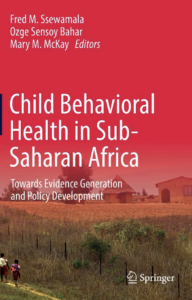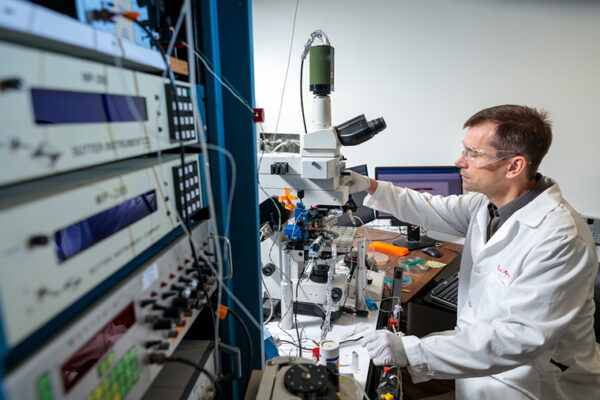Child Behavioral Health in Sub-Saharan Africa
Towards Evidence Generation and Policy Development
Countries in sub-Saharan Africa have experienced considerable political and social instability. They also have the highest rates of HIV/AIDS and malaria globally, resulting in a myriad of physical and cognitive consequences for young people. The burden of mental health problems among children and adolescents in Africa is significant, and the treatment gap in mental health […]
WashU part of $65 million NIH study of schizophrenia in young people
Washington University School of Medicine is part of a major international study aimed at identifying causes and effects of the early stages of schizophrenia in young people, with the goal of improving early diagnosis and treatment. Daniel Mamah, MD, is the lead investigator at the WashU site.
It’s complicated: Social media and well-being during COVID-19
Research from the lab of Renee J. Thompson in Arts & Sciences shows social media use associated with mixed outcomes when it comes to well-being during the pandemic.
Building bacteria to keep us well
Tae Seok Moon, associate professor at the McKelvey School of Engineering, has engineered bacteria that can detect specific molecules in the gut.
Psychotic experiences in children predict genetic risk for mental disorders
New research from Washington University suggests that psychotic-like experiences in children may predict risk for mental illness.
WashU introduces telehealth services for students
In an effort to further support student mental health, Washington University is introducing TimelyCare, a service of TimelyMD, a leading telehealth company specializing in higher education.
$12.2 million to fund new Conte Center to study neurosteroids
The National Institute of Mental Health has awarded Washington University School of Medicine a $12.2 million grant to create a center aimed at advancing research into neurosteroids as treatments for depression and other psychiatric disorders.
Creed honored for research involving mood, chronic pain, substance use
Meaghan Creed, assistant professor of anesthesiology at Washington University School of Medicine, received the 2021 Freedman Prize from the Brain & Behavior Research Foundation. The prize recognizes exceptional basic research in mental illness.
Global Incubator Seed Grants awarded
A new round of recently awarded Global Incubator Seed Grants from the McDonnell International Scholars Academy will help kick-start more than a dozen high-impact, innovative projects taking place on five continents.
Mamah receives mental health award
Daniel Mamah, MD, associate professor of psychiatry at Washington University School of Medicine, has received the 2021 Dr. John M. Anderson Excellence in Mental Health Award from the St. Louis County Children’s Service Fund, in partnership with The St. Louis American Foundation.
Older Stories









